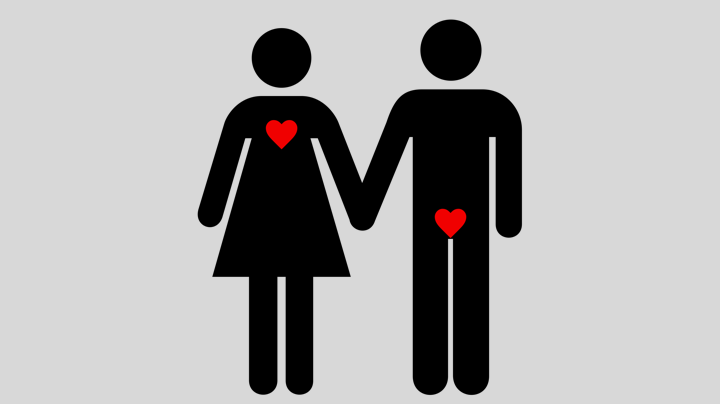
Every society holds different ideas, values and norms which they interpret according to what they have always done in their own culture. These ideas often dictate the ways that people live in society and how they are expected to carry themselves, how they dress, how they present themselves, how they behave and how they think about certain issues.
What are gender roles?
Generally, our society has a set of norms - traditions, customs and values which form the basis of our knowledge of what is acceptable or not. You may call it a societal code of conduct. For instance, it is not acceptable for you to collect things with one hand.
That’s the same way our society and culture expects a certain set of behaviors from us. We are expected to act, speak, dress, groom and conduct ourselves according to our gender or sex (male or female).
For example, girls and women are expected to dress themselves in clothes considered to be feminine, be polite, soft, sweet, accommodating, agreeable and nurturing while men and boys are supposed to be macho, strong, aggressive and bold.
Every society, ethnic group, and culture has gender role expectations, but they can be very different from group to group. They can also change in the same society over time. For example, pink used to be considered a masculine color in the U.S. while blue was considered feminine. (Bet you are also surprised!)
How do gender stereotypes affect people?
A stereotype is a widely accepted judgment or bias about a person or group — even though it’s overly simplified and not always accurate. To stereotype is to believe unfairly that all things or people with a particular characteristic are the same. Stereotypes about gender can cause unequal and unfair treatment because of a person’s gender. This is called sexism.
There are four basic kinds of gender stereotypes:
- Personality traits — For example, women are often expected to be accommodating and emotional, while men are usually expected to be rational, self confident and aggressive.
- Domestic behaviors — For example, some people expect that women will take care of the children, cook, and clean the home, while men take care of finances, work on the machines, and do the home repairs.
- Occupations — Some people are quick to assume that teachers and nurses are women, and that pilots, doctors, and engineers are men.
- Physical appearance — For example, women are expected to be thin and graceful, while men are expected to be tall and muscular. Men and women are also expected to dress and groom in ways that are stereotypical to their gender (men wearing short haircuts while women were supposed to wear long hair and thanakha.
Gender stereotypes are harmful because they don’t allow people to fully express themselves and their emotions. For example, it’s harmful to masculine people to feel that they’re not allowed to cry or express sensitive emotions. (Crying is very therapeutic for everyone, it frees you of negative feelings and makes you feel that you are ready to face your challenges, but keeping your emotions in can lead to health and mental problems)
And it’s harmful to feminine people to feel that they’re not allowed to be independent, smart or assertive. (Look around you and you are most likely to find strong, independent and beautiful woman who have gone ahead to achieve great feats because they decided to embrace who they are!) Breaking down gender stereotypes allows everyone to be their best selves.
Never let stereotypes define and confine you! You are much more than what the world sees! So much is packed on the inside of you that the world desperately needs but hasn’t seen yet.
So get up and be the best that you can be! No one should be forced to wear a mask- as in to pretend to be who they are not!
It is not only unfair to the people involved, society at large also loses out on the important qualities that these people possess but cannot unleash because of what others may think about them.
What’s intersex?
Are you thinking “’What on earth is that supposed to mean?” Well, human beings are as diverse as possible! Some people are born with a mix of male and female biological traits that can make it hard for doctors to assign them a male or female sex. These people are intersex.
What does intersex mean?
Intersex means that a person is born with a combination of male and female biological characteristics, such as chromosomes or genitals, that can make it difficult for doctors to assign their sex as distinctly male or female.
Being intersex is a naturally occurring variation in humans, and isn’t a medical problem. It’s also more common than most people realize.
There are many different intersex variations. Some intersex people have ambiguous (unclear or a bit confusing) genitals or internal sex organs, such as a person with both ovarian and testicular tissues.
Other intersex people have a combination of chromosomes that is different than XY (male) and XX (female), like XXY. And some people are born with what looks like totally male or totally female genitals, but their internal organs or hormones released during puberty don’t match.
If a person is born with intersex genitals, they might be identified as intersex at birth. For people born with more clearly male or female external genitals, they might not know they’re intersex until later in life, like when they go through puberty. Sometimes a person can live their whole life without ever discovering that they’re intersex.
What happens when someone is born intersex?
Awareness of intersex conditions is growing. In the past, when a baby was born intersex, doctors and the family would decide on a gender and raise the baby as that gender — either male or female.
If you have a child who is intersex, open conversation about gender is especially important throughout your child’s life .It can help your child develop a healthy gender identity and body image.
